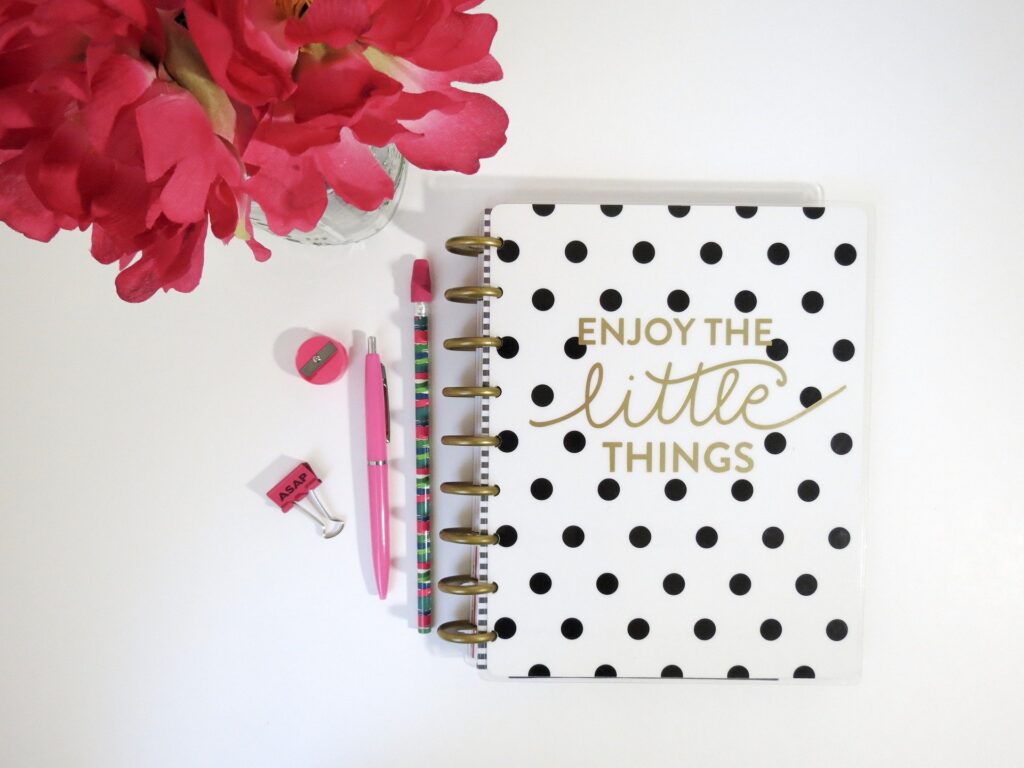‘Patience is a virtue’, they say, as though it’s something complete that you can carry with you at all times. However, this is not necessarily so. Working with children in any capacity can lead you to the realisation that you may not be as patient as you think, particularly when you’re struggling to get to grips with a challenging child!
It’s clear we are not born with patience – try asking a toddler to wait two minutes and you’ll see what I mean.

So, it may come as a relief to learn that patience is something we develop. It is a skill. That means we can get better at it, which may be a great relief to some!
Here are some steps you can take, to help you stay patient while your children grow and learn.
1: Teach your child Self-Control
We can all recognise a tantrum when it happens. Do you remember the first time this happened to your child, if it did? Do you remember the sense of panic? And the feeling that this was something you had to stop. Immediately. But without ever having encountered anything quite like it, you’re at a loss for what to actually DO in the moment.
You may have managed toddler tantrums, very patiently, or not had them at all. You may have thought you had come through it, with a sigh of relief only to find, some years down the line that toddlers are not the only ones who tantrum. They can occur at any age. Later, towards top primary age, they may appear as hysterical outbursts, pouting, sulking, shouting, stamping of feet and making demands and cries of ‘It’s not fair’.
The aim of this behaviour as far as your child is concerned, is to get their own way about something. For you, it is an indication, that you may need to work on their self-control or on boundaries (more about boundaries below).
The most important thing to remember when you’re teaching your child self control, is that if you are patient, you can be in the role of guide/mentor. You don’t need to get involved other than being in support of their efforts to regain composure and praising them when they manage it.

This will confirm to their brain that what they did inside themselves was the correct response.
For example,
- As the tantrum begins, be firm and do not get involved.
- They need you to be ‘the rock’.
- They don’t want to be ignored.
- They are in the grip of conflicting forces – to get their own way and to get themselves under control.
- They are trying to get to grips with an emotional reaction which is a very powerful force.
- Calmly and quietly, let them know that you will wait until they have calmed down.
- If you need to hold them so that they don’t hurt themselves or others, face them and hold both wrists, firmly but kindly.
- Keep away from flailing feet!
- Give space for them to let off steam without saying anything.
- If you think it will help, quietly suggest they take deep breaths.
- As soon as you feel they are back in control of themselves, tell them how well they have done, suggest they have a little wash if they’ve been crying.
- Draw a line under it and carry on.
Each time your child is triggered to have a tantrum about getting their own way, monitor how long it takes for them to calm down. It won’t be very long before this will be a very quick process and you’ll find the outbursts diminish.

There now, that’s better!
2. Make sure expectations are realistic and understood by all
Anyone who works with children knows that at times, their behaviour can be the trigger for us to lose our patience. This happens when they don’t listen. They don’t respond. They don’t come when you call. They squabble. They moan when you ask them to do anything. They drive you mad in the morning when you’re in a rush to get out of the door. We’ve all been there. Rest assured. Though many have tried, given it their all and been defeated, me included, it is virtually impossible to control children’s behaviour!
If you want to stay patient, my best recommendation would be to make sure they understand exactly what is expected of them. To do this, you need to be very clear in your instructions and expectations, and you need to work out what consequences to apply that will be effective while they learn.

In the long run, it will pay dividends because you will make very clear exactly what you will and won’t allow and it will help them not only with self-control, but as a bonus, self-respect and respect for you, too.
Consequences: Start small and start easy with consequences.
- Work on one thing at a time.
- For example, let’s take, ‘they don’t come when you call’.
- To start with, focus on this for a week.
- Let them know in advance that from now on, when you call them, you expect them to come straight away.
- Do a couple of practise runs as you tell them.
- Then – together – decide what the consequence will be if they don’t come to you when you call.
- Will you go to them, cross? Is that what they want to cause?
- Will you only call once and then ‘not bother’ to call again, in which case they will miss out on whatever is happening?
- Will you time how long it takes before they come and then take that time from TV or screen time?

If you make suggestions together, they know the consequence of not doing what you want and all you need to do then, is follow through.
- The follow through is the most important part. If you focus on one action at a time and one consequence at a time.
- When you have mastered one, move on to the next, but you may find your children have begun to respond more promptly in all areas.
3. Check the pressure on everyone – and especially, on you.
We can all get irritable and impatient, with ourselves and children, when we feel under pressure. This feeling is a safety warning that’s part of our human response when we start to push our own tolerances. The pressure may be from an external source such as exams; job interview; late for work and in general too much to cope with, in the time available. Currently, the anxieties and way of life changes brought about by the pandemic we are experiencing is likely to be a source of pressure as well.
When pressure is a factor it can help to take a step back in yourself. Make the time to do this for your own health and wellbeing. Some people find it helpful to make lists; some prefer to simply reflect over a cup of tea or by chatting with a friend, the important thing here, is to examine:
- What’s causing the pressure
- What you can change to ease that pressure
- What you can do to manage what you cannot change

We are very creative and resourceful beings, but pressure can cause the brain to ‘freeze’ or ‘flood’ and because we cannot think, we lose patience.
It’s one way the body tells us we need to take some kind of action to regain control.
4. Be consistent!
Another point which can indicate you have a chance to steer clear of impatience, is when you hear yourself saying, ‘how many times do I have to say it?’ It may help if you use these words as a signal to examine how consistent boundaries are being maintained at the moment.
When there are holidays and routines are interrupted, children’s brains can see this as an opportunity for change. Signs to look for are staying up late, having additional tv time or extra screen time, ‘as a reward’, can all herald unwanted behaviours in children.
Many years ago, I taught a wonderful year 3 class of normal, friendly, bubbly children. I was asked to supervise a young, final year, student teacher. On paper, she seemed well prepared. In herself, it seems, not so. Within twenty minutes something close to a riot was underway in my classroom. Even the most docile of children can become unrecognisable out of routine and the only mistake the poor student made, was that she was not me. Be careful when you are flexible with boundaries or when expectations are smudged.

Children’s brains are very acute and will take every opportunity to point out to you through their behaviour that your nice, secure boundaries are wobbling.
Take firm and decisive action to restore expectations and self-control. To do this, sit your children down and talk about the affect their behaviour has on you, them, their development and the atmosphere in family life. Ask them how they think you can work together to fix it.
5. And…. How are you?
Mums are super-selfless people who turn themselves inside out 24/7 to protect, nurture, educate and care for everyone in the family, often holding down a job and managing the home at the same time. There’s no getting away from it, your ‘to do list’ is extensive and you always put yourself last.
Even though it ‘goes with the territory’, remember you’re ‘only’ human and have your own life to lead. The children came to join you, not to completely take you over so you give up your life, your independence, your purpose!
If you’re getting grumpy, it is not ok to be ‘not ok’. It’s a sign that you need some rest and repair, whether that’s a long, hot soak in the bath while someone else holds the fort, a complete break (as soon as lockdown eases) or any steps in between, it’s very important that you do this. There’s nothing heroic about making yourself ill with stress and no one will thank you for it.
Here are a few suggestions that may help:
- Keep a journal – make it a priority to give yourself ten (you choose five or ten and time it) minutes writing time at the start and/or end of each day.
- Make it your official ‘private time’ and let everyone know to leave you alone for those ten minutes.
- Teach your children to have respect for this time by telling them not to disturb you at all during this time.
- Decide in advance what your children can do, while you take your time out, so they have no reason to disturb you.
- Maybe they can have quiet time as well – reading, drawing, colouring, tracing? Discuss it with them.

Maybe they can have quiet time as well – reading, drawing, colouring, tracing? Discuss it with them.
6. Final thoughts
I once told my Year 6 class that I wanted to try an experiment which was going to be called a Guided Sit. Essentially, this was a meditation, which nowadays would not surprise anyone, but back in the 90’s was considered a little revolutionary!
What surprised me was that what began as an experiment on my part, turned out to be something the children absolutely loved! This was an ordinary class of children with some youngsters from quite challenging backgrounds. The word ‘streetwise’ comes to mind!
I had no idea how they would respond the first time I talked them through being a rainbow spreading out to fill the classroom, into the street, filling the country, into the sky and then into the universe, as they lay on the carpet or draped themselves across their desks with quiet music playing in the background. There were no giggles. No shuffles and nobody spoke. Peace reigned supreme. They were sent straight out to lunch afterwards, without comment.

Before they went home that evening, I asked them what they thought of the experience and was stunned with their enthusiasm and pleas to do it again!
On reflection later that evening, I realised that most of those children must live in very busy homes, sharing space with a sibling or other family member and rarely experiencing such quiet time. They relished each time we did our Guided Sit – changing the ‘story’ each time – and their focus, good behaviour and achievements increased. Even OFSTED were impressed with the response when they witnessed it one day.
So, if you’re stressed, it may be that your children are also stressed and would appreciate a little downtime each day that they can rely on as well so that everyone can then have patience with everyone else.
If you need any help with motivating children or establishing boundaries, contact me at ga**@le**********.com
Visit my website: www.lessonsalive.com Author of: 100 Things to Learn before you’re 10 and A Short and Simple Book for the Why’s available from: https://theendlessbookcase.com/
© GailHugman June 2020





Leave a Reply